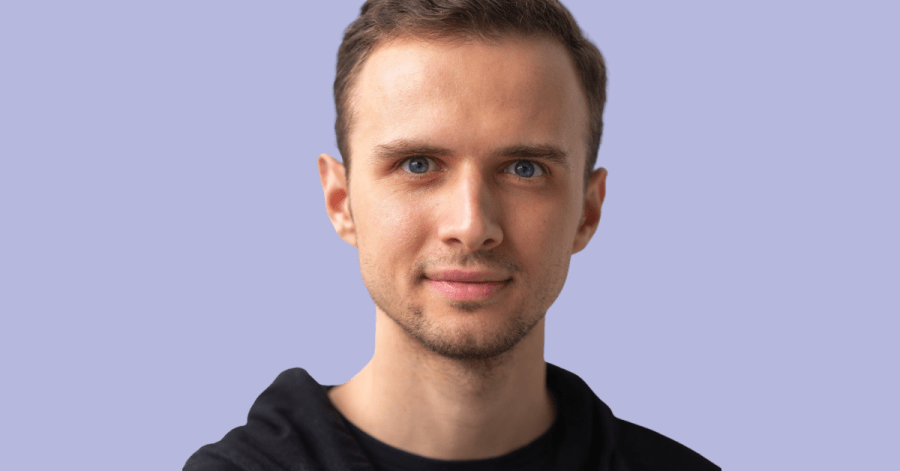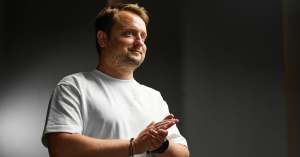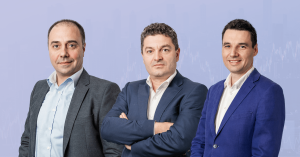Seated in the Head of Marketing chair at Google in Romania since 2017, Dan Oros is first and foremost a technology aficionado. Within his position, technology plays a central role: a means to an end, as well as the end product itself. But it’s a belief in the impact of technology on people’s lives and on overall human progress that drives his work at Google, from coordinating the marketing department in Romania, to various regional projects aimed at developing the digital economy.
One of these projects is Google for Startups, which he talks about in more detail in the interview below. Passionate about startups, Dan is also investing in early-stage tech startups as part of the Accel Starters program since 2020, and working closely with tech founders as an advisor and board member.
Before joining Google, Dan Oros was Country Manager at BlaBlaCar, Head of Special Projects at Ana Holding, and worked in consulting for AT Kearney and IBM.
What follows is an interview about his key responsibilities as Head of Marketing, how Google for Startups works, marketing advice for startups at various stages, and the culture at the big tech company.
The Recursive: Was marketing your dream career? What do you enjoy most about it?
Dan Oros, Head of Marketing at Google in Romania: I did not have a specific career in mind while growing up, but I’ve always been interested in technology and how it drives progress. What I enjoy the most about marketing is that it’s both a creative and analytical field, therefore I get to work on a wide variety of projects, from storytelling and branding, to strategy, analysis, and measurement.
What are your current responsibilities as Head of Marketing at Google?
At a very high-level, my role is to bring our helpful products and technologies to everyone.
I look after three main areas:
- Ads Marketing (B2B): helping companies and agencies grow their business online through educational programs and tools;
- Consumer Marketing (B2C): connecting users with our products (Search, YouTube, etc.), and launching new ones in Romania (YouTube Premium/ Music/Kids, Google Pay, Wallet, etc.);
- Grow with Google: supporting the growth of the digital and startup ecosystems with Google for Startups, Atelierul Digital, and many other initiatives.
What key marketing tendencies are you following in the next period?
I think Marketing is a mix of storytelling and data-driven decisions. What I am following closely is how technology is helping everyone to tell better stories and to reach more customers, and how it can provide so many insights to marketers about the effectiveness of their campaigns.
How should startups go about marketing, particularly at early stages when funds are scarce? What should they prioritize and what can come later on?
Startups should prioritize getting early customers and making sure they build products and services people need. This means that, at first, marketing is more about reaching those potential early adopters and discovering the audience that would get the most value from your product. Defining that clear value proposition and crafting the communication to reflect the benefits is key.
Accelerating growth through big marketing campaigns should come later on, once you find product-market-fit. Same with doing incredibly complex analysis, as the initial data sets are usually too small to provide actionable insights.
You are also investing in early-stage tech startups as part of the Accel Starters program, since 2020. What is most important to you when assessing a startup? How about when working with the founders?
I angel invest as a side project, at very early stages, and the most important factors are the founders and the problem they are trying to solve. I am looking for people who are really passionate about their mission, who are driven and hard-working, and with a growth mindset, who are always learning. I also only work with people who are ethical and with whom I share certain values.
I am looking for startups that are solving interesting challenges and I frequently ask myself “will it matter if this problem is solved?”.
Google also has a tech startup program called Google for Startups. What is the project’s mission in the local startup ecosystem?
Google for Startups connects founders with the right people, products, and best practices to help their startup grow. We provide support for every stage of the startup journey, from founders just starting out and validating their MVP, to scaleups growing to meet the needs of new customers and markets.
For the last five years, we’ve been playing a significant role in growing the local startup ecosystem. From supporting the biggest tech conferences, to partnering with the top local accelerators, we had the opportunity to engage with hundreds of founders. We helped them with tools, resources and expertise, and, together with our partners, contributed to the acceleration of the local ecosystem.
Would you help us lift the curtain a bit on what is the culture at one of the biggest tech companies? What do you like most about it?
On the culture topic, there are two things that I personally enjoy most about Google: internally, the investment in people, and externally, the helpful mindset. Google invests a lot in providing growth opportunities for its employees, which creates an amazing learning environment. We also have a strong culture on creating programs and products helpful to everyone. The helpfulness value is a core component of our culture and is reflected in how we make decisions.
Finally, what do you do to keep yourself up to date on your areas of interest and expertise?
A mix of newsletters, YouTube and Twitter.








